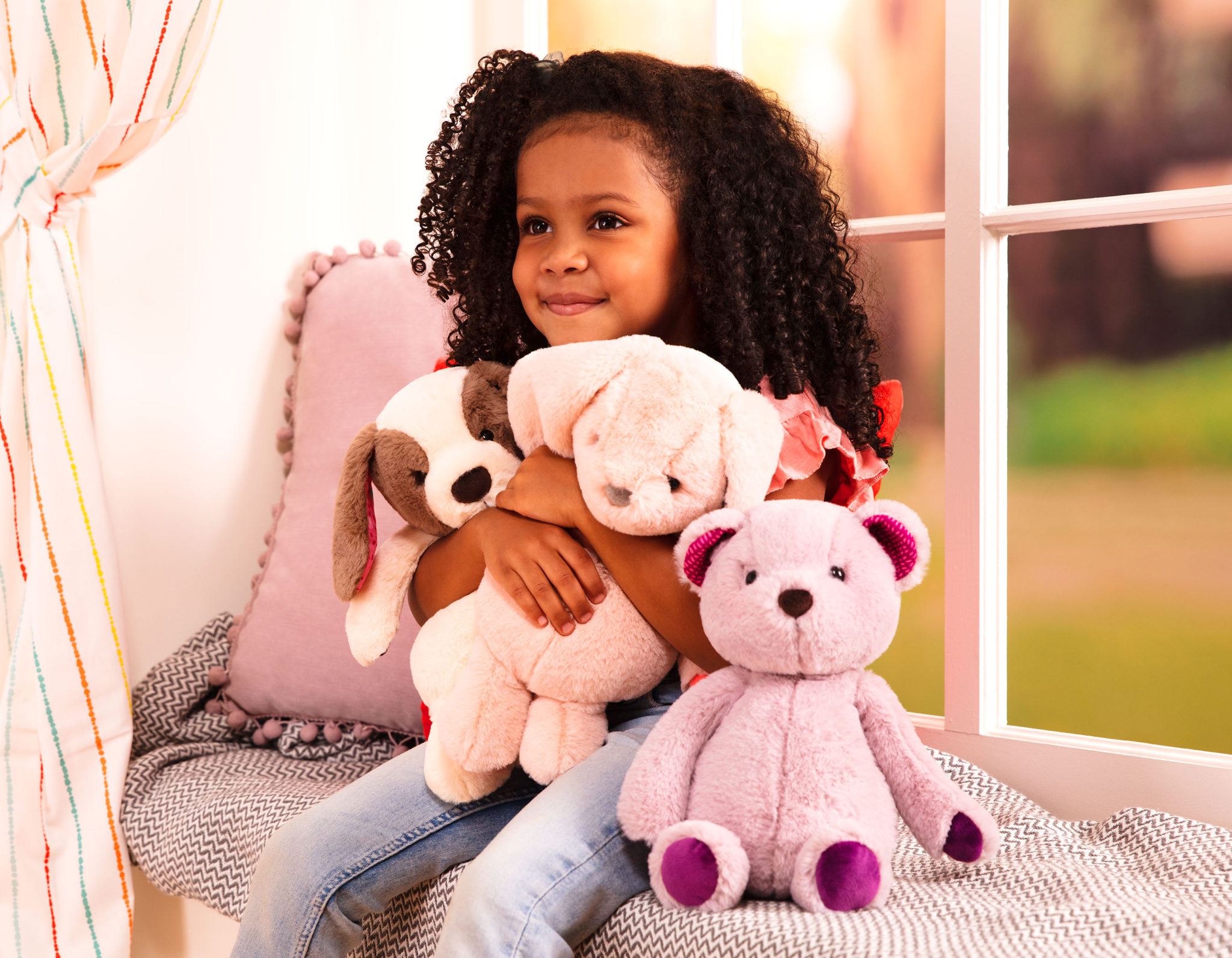
Everyone remembers the stuffed animal they loved and cherished as a kid. The bunny rabbit you held tight every night. The teddy bear that accompanied you on every trip. The plushy pup who had its own seat next to you at the dinner table. On the outside, these toys are soft and snuggly renditions of real animals that you could come across on a camping trip, at the zoo, or in a home. But to your little one, they’re much more than that. For many tiny tots, a plushie becomes a loyal buddy that comforts them, listens to them, keeps their little secrets, and stays by their side as they explore the world around them.
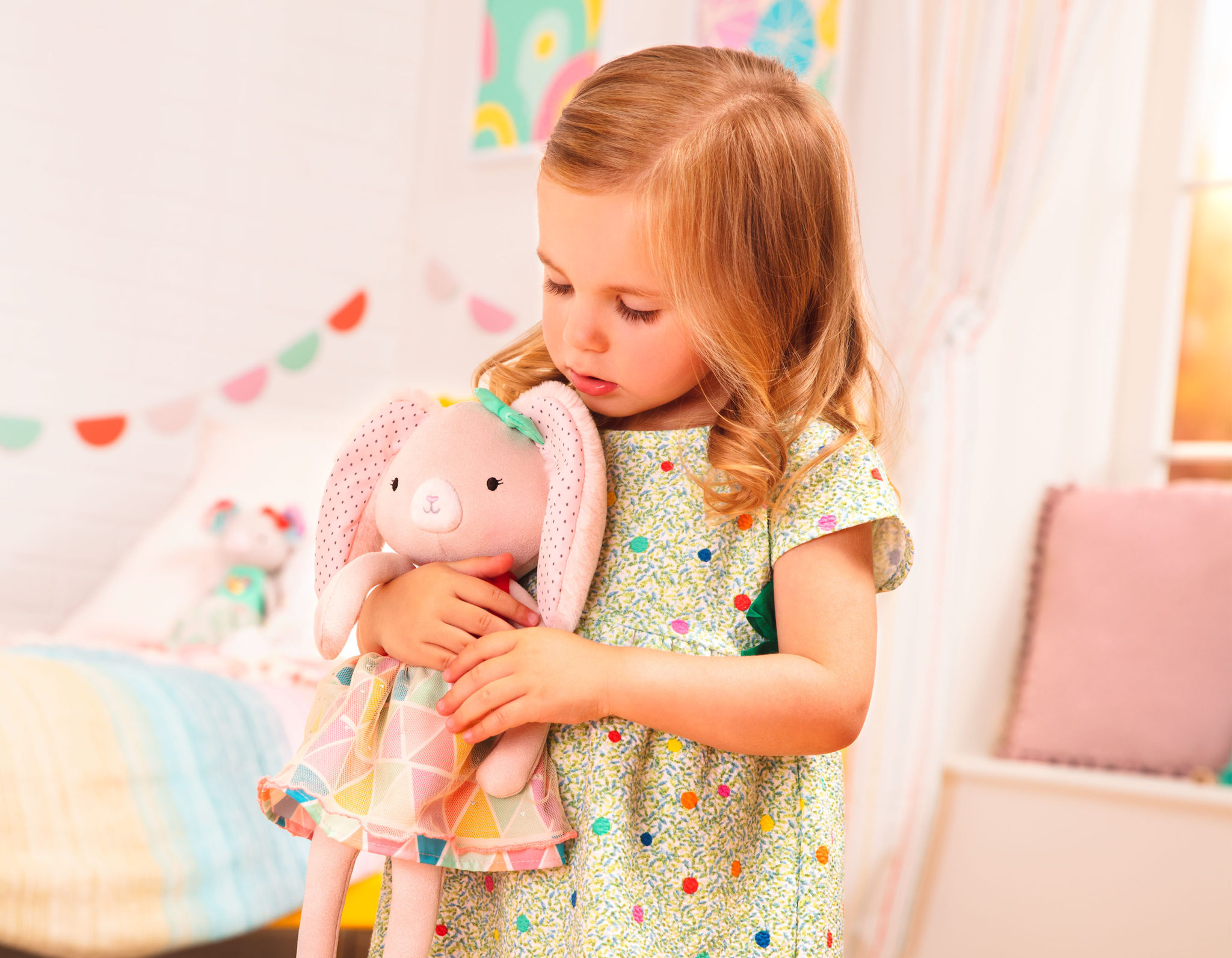
Turn a Frown Upside Down
When a baby’s first stuffed animal lands in their hands, chances are it’s love at first touch. What likely follows is endless hugging, snuggling, squishing, playing (and maybe even a little chewing) – which forms a special and comforting bond between the two. A softie is there for the smiles and giggles, but it could be vital when your baby is feeling a little stressed as well. Discovering a whole new world is a big challenge after all! And this is exactly where that bunny or teddy could come in handy. In the times where a frown needs to be turned upside down, your baby’s favorite stuffed animal can double as an emotional support system because they represent comfort and familiarity.
From Playtime to Care-Time
Because plush toys can quickly become plush pals, they can be great for teaching your toddler about care – and one of the best ways to do that is through pretend play. Say your little one is having a tea party with their favorite bunny, Sprinkle. First things first, secure an invitation. Once you get the green light to attend, you can show your child how to take care of Sprinkle by telling them that everyone at the table should get a cup of tea and a sweet bite to eat. And if you can encourage your toddler to play with toys like doctor kits or vet sets, it can also foster empathy and compassion because they’ll be taking care of their toy as a patient. In turn, when your child will face social situations in real life – in a classroom, for example – they will understand the importance of sharing and considering others.
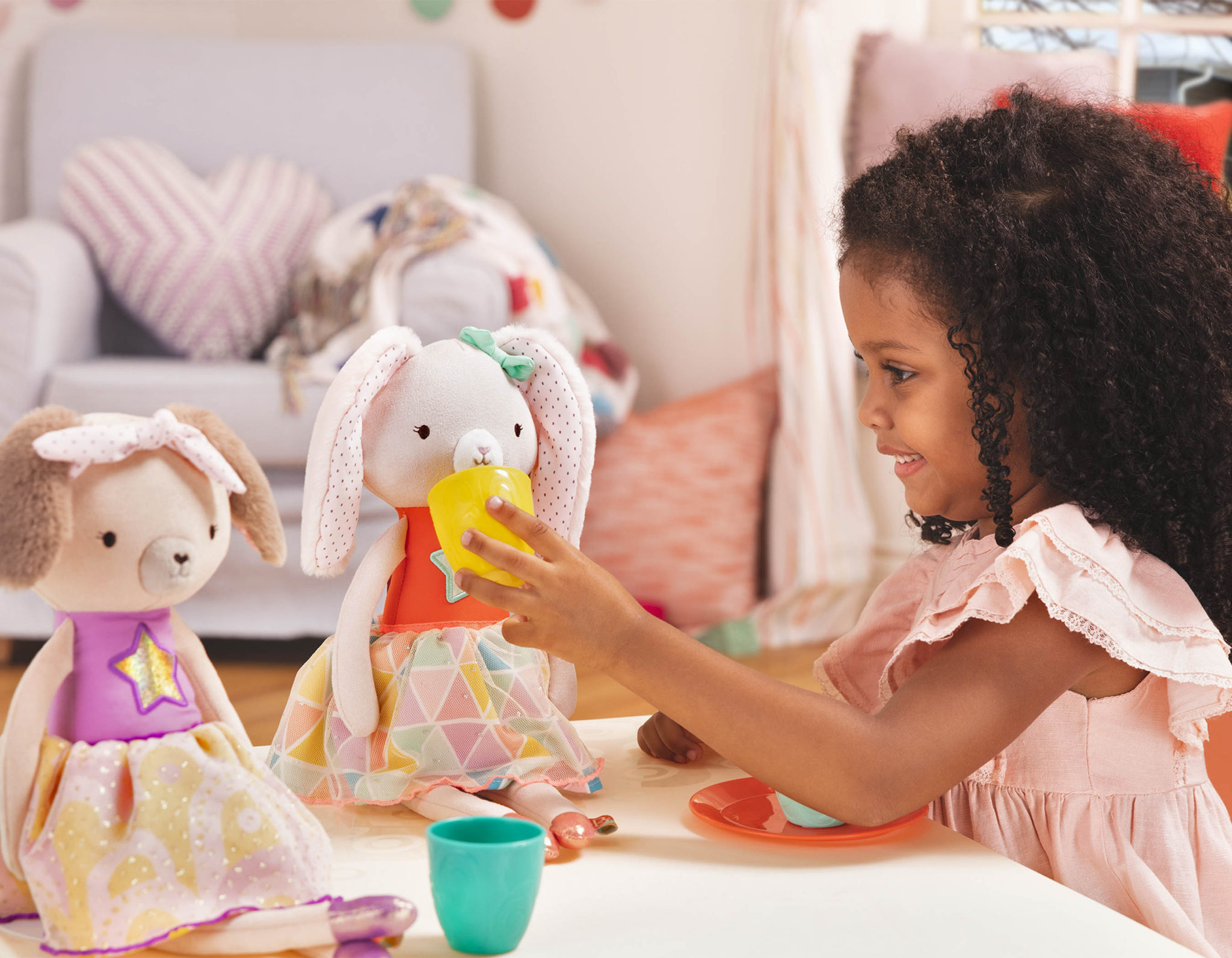
Let’s Talk!
Pretend play with stuffed animals can also help your kiddo develop their language skills. Communication is a big part of friendship, and because a child will often be best buds with their plush toy, chances are they will talk to it! And speaking with Sprinkle or Cupcake can help them practice their vocabulary and express themselves in a safe space – these pals are great listeners and will let your child speak freely! Talking to a special stuffie also means that your little one will only hear the sound of their own voice, which could also help them improve their speech and pronounciation. And if you see that there isn’t all too much conversation taking place, just pick up the plushie and talk for them to inspire your child to role-play!
Whether it’s a soft snuggle, a tea party, or a heart-to-heart, it’s always good to have a cuddly companion who’s filled with love!
The information above is meant as suggestions only. We always recommend consulting a healthcare provider. For all medical or urgent issues, please contact your health provider immediately.
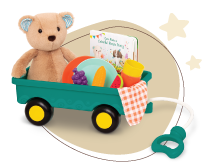
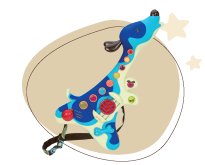
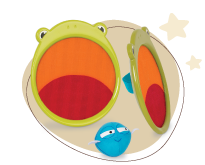
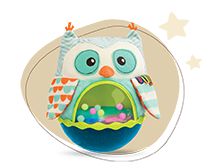
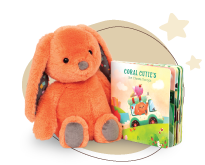
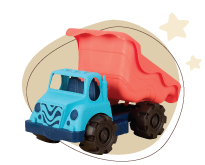
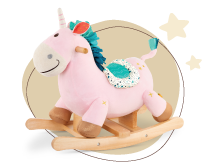
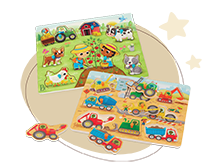
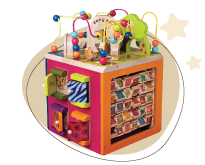
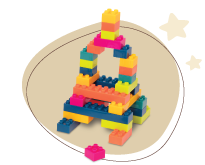
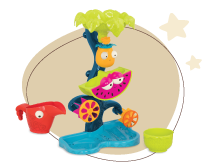
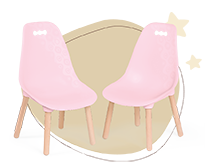
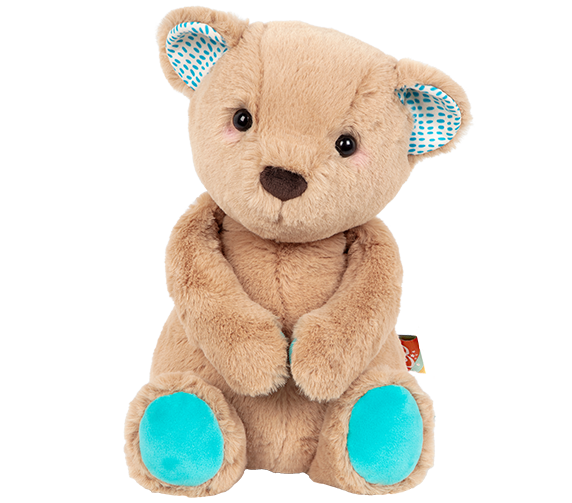
LOVE you site . . . so much to choose from!